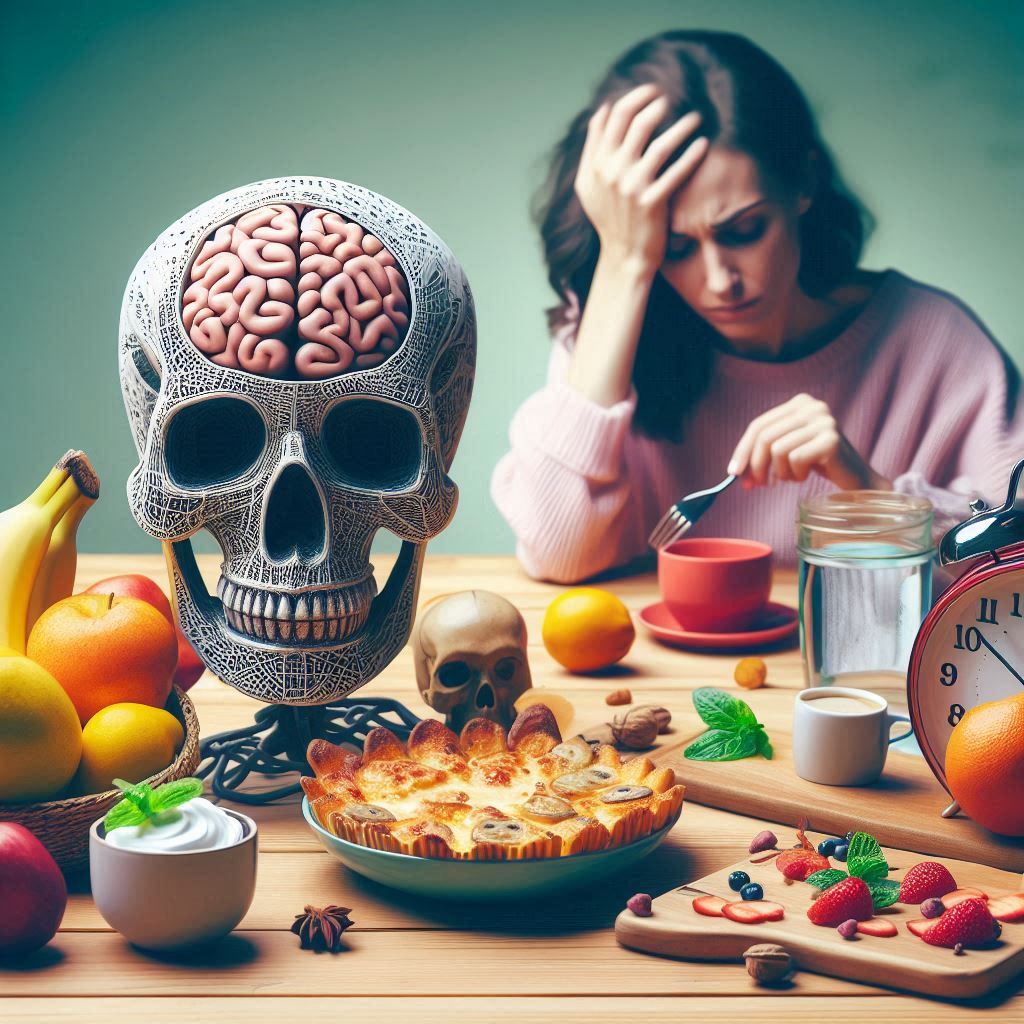Is intermittent fasting bad for mental health
Short-term fasting is one of the latest trends that many people convert to for losing some weight and improving their health. But as more people adopt this eating pattern, an important question arises: is intermittent fasting bad for mental health? Their problems are all too human. Is intermittent fasting bad for mental health? Reading this article, the author tries to analyze the effects of the intermittent fasting concerning mental health and investigate the positive aspects and possible negative impacts.

What is intermittent fasting?
It is the eating regimen that involves going for a certain length of time without food before consuming some meal. Common methods include:
- 16/8 method: Something known as the 16:8 diet is the practice of fasting for 16 hours in a day intercalated by 8 hours of normal consumption of food.
- 5:2 diet: Actually, the former is a normal diet that includes taking regular meals, while the latter is a low-calorie diet, and it is taken for only two days but in different working weeks.
- Eat-Stop-Eat: They can do one or two fasts within 1 week, the ones that are within 24 hours.
Intermittent Fasting and Its Health Impacts with a Focus on Mental Health
Still, some of them claim that IF indeed does not harm the mental state and may even be beneficial. Let’s explore some potential positive effects:
Less Depression, More Alertness
The experience of some people reveals that they feel much better in terms of alertness during the period of fasting. This could be as a result of ketones that are produced as a result and which can be used as an energy source by the brain.
Reduced Inflammation
Skin care measures involve the skin type, skin ailment or disease, male or female hair care, and caring tips for those with different skin types; studies have shown that chronic inflammation leads to depression and anxiety. According to research, this plan can be effective to a certain extent in reducing inflammation all over the body, and in that way, it has a positive effect on the mental health of the person.
Enhanced Brain Function
There is evidence in rodents that we may produce new nerve cells due to intermittent fasting and prevent age-related damage to the brain. However, these effects were established in animals, and further studies are required to validate these findings in humans.
Is intermittent fasting bad for mental health? Potential Risks and Concerns
Whereas some people experience positive effects of their mental health when practicing IF, others can experience the opposite. Thus, is intermittent fasting bad for mental health in some cases? Let’s examine the potential risks:
Increased stress and anxiety
In some people, intermittent fasting results in increased stress and anxiety connected with the rules and limitations of such diets. This gives rise to the speculation that periodic restricted eating may not be very healthy for the mental health of people with such complications.
Mood Swings and Irritability
Proper intake of foods is very important during the fasting periods in that hunger and low blood pressure will lead to mood swings, irritation, and poor concentration. This can have a detrimental effect on one’s performance and interactions with other people, hence developing doubts if intermittent really has a negative effect on the mental health of an individual.
Exacerbation of Eating Disorders
The few demerits of IF make it unsuitable for people, some of whom may have had issues with eating disorders or abnormal eating patterns in the past. This is a very crucial element to look into, in case you are wondering: is intermittent fasting damaging to the mental health of such patients?
Disrupted Sleep Patterns
There may be problems with sleeping, as people that feel hungry before going to sleep may face this issue after introducing intermittent. .
Here it is important to note that the above human translation does not fully capture the meaning encapsulated in the artificial intelligence-powered translation below:
Introducing intermittent fasting may lead to sleep problems, something that affects those experiencing hunger before sleeping. It is very crucial to note the quality of sleep, as poor quality sleep has negative impacts on mental health issues.
Individual differences are factors that influence learners’ behavior within or outside classrooms.
Start gradually: Start with several hours of fasting, then gradually extend the quantity of hours.
Listen to your body: While taking this substance, you might be concerned about some dangers, such as negative effects and sneaky damage to our bodies, which last for a long time, and if you encounter any of these effects, then you should reconsider your strategy.
Seek support: The dynamics of using Nutrisystem might be best understood with the help of a healthcare professional or a registered dietitian.
Why it is crucial to pay attention to our psychological state
If you follow the system of intermittent fasting, then be careful with your psyche during the day. Learn the way your emotions operate and be realistic about how effective or not effective this type of eating plan is to your mental well-being.

Conclusion
So, is intermittent fasting bad for mental health? The answer isn’t straightforward. Some benefits for your mental health can come from intermittent fasting, while others may suffer from its negative effects. In other words, the greatest goal is to determine an eating habit that is healthy and sustainable for your body as well as your mind.
FAQs
Intermittent fasting is a healthy way to lose weight and effortlessly knock off some years from your appearance, but does it lead to depression?
Although IF is not associated with depression, it might stimulate mood swings or even worsen depressive symptoms in some people. That is why when the patient is practicing intermittent fasting and there is constant low mood for several days, then it is probably time to look for an alternative approach and seek the doctor’s advice.
Can people who have had problems with eating disorders try intermittent fasting?
The last subject that has to be taken into account about intermittent fasting is: It is important not to follow intermittent fasting in cases of histories of eating disorders. However, if one wants to fast in any way, shape, or form, they should first seek permission from a mental health care provider and a registered dietician if they have had any hint of an eating disorder.


Pingback: Does Tea Break Intermittent Fasting? A Comprehensive Guide - Total Health Society